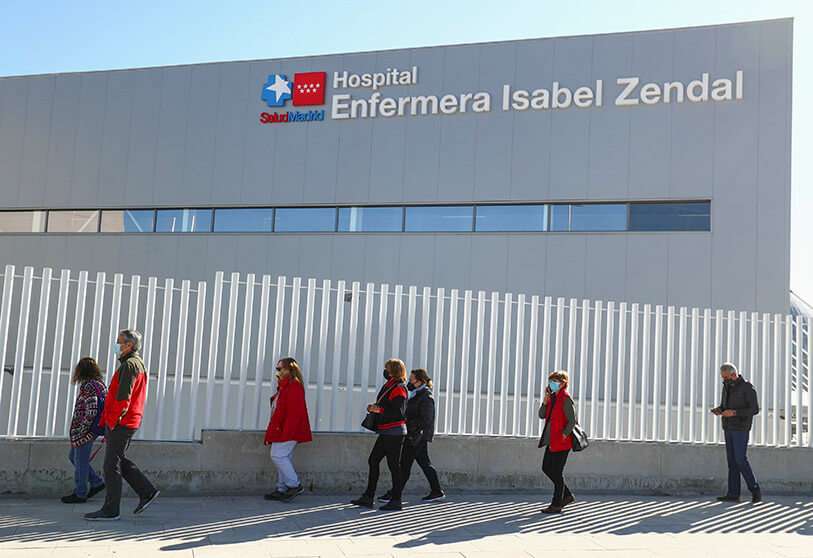Considerations in the mid-term phase of the SARS-CoV-2 pandemic in the European Union

The first third of the 21st century is posing major challenges to humanity, including the challenge of environmental sustainability, attention to the marked differences between social groups that indiscriminately affect the world as a whole, and the emergence of pandemics.
Epidemiological and public health experts estimate that pandemics will recur in the medium to long term.
The development of social organisation and the complexity of establishing coherent actions require us to increase our capacities in the search for new scientific solutions, but also in excellence in other areas such as the homogenisation of international law and the extension of the limits of expression of the different cultures and social groups that inhabit our planet.

The World Health Organisation (WHO) declared at the end of January 2020 the establishment of an international emergency or pandemic, which involved health workers and prompted collective restriction measures in all EU states.
The media coverage of the phenomenon influenced the perception of extreme risk in the population and, together with the lack of memory of previous historical situations, led to a feeling of uncertainty about the future and the fragility of people's lives in the face of the spread of the pandemic of Asian origin.
Most experts in epidemiology and public health defined the situation as very serious, although they disagreed on technical aspects, although only exceptionally did they lead the decisions of the various EU governments.
All this, together with the impact on medical and technological capacity in the initial phases of the pandemic due to the difficult development of work processes, including the doctor-patient relationship as the centre of health care, has influenced the manifestation of shortcomings such as institutional uncoordination at the different decision-making levels which, together with the deficiency of political leadership and the lack of transparency in the objectification of data, has led to organisational confusion in the initial phases of the pandemic in the extensive territory of the EU.

In a research effort that goes beyond regulatory compliance, more than 300 effective SARS-CoV-2 betacoronavirus vaccines have been developed in just one year (clinicaltrials.gov), five of which have now been approved by drug accreditation bodies, including the FDA (USA) and the European Medicines Agency (EMA).
Using known or new generation platforms with RNA or DNA, viral vectors, etc., effective immunogenic agents have been developed which, despite their clinical safety, have had varying acceptance across cultures, countries and continents. Data on their efficacy reflect 90% protection figures, higher than those offered by the annual influenza vaccine, and although doubts persist in critical population groups, perhaps the main unknown lies in the duration of the immune response.
Despite the ethical issues raised by the selection of candidates for vaccination, vaccination should promote the absence of risk in compliance with the basic ethical principles of fairness, equity and transparency together with the real fact of the capacity of vaccines as medicines that have historically transformed and improved the history of our civilisation.

A genuine commitment is required from the various health actors and in particular from the conceptualisation of Public Health and Epidemiology specialists whose opinion defines the distribution of resources.
In this sense, it is necessary, once again, to emphasise the need for political decisions to be subject to health decisions in a pandemic situation, with the sole aim of maintaining a necessary perspective in the understanding and protection of society's health.
The organisation and management of primary care and public health services have shown serious shortcomings due, among other reasons, to the medicalising orientation of industrialised societies and the lack of efficient and well-equipped epidemiological surveillance services.
Special mention should be made of the reliability of the official information provided from the beginning of the pandemic, which, without exception, has characterised EU countries across the board, providing misleading or unreliable data on the total number of deaths and infected persons, especially during the first months of the pandemic.

For some population groups, such as pensioners or health care workers, the risk of death or illness is greater than the possible side effects of preventive measures. The model of comprehensive care for the elderly has been called into question and has defined a very important feature of the pandemic which lends itself to ethical considerations, as the medicalisation of institutions providing continuing care for the elderly does not offer a satisfactory response due to the risks of therapeutic obsession or obstinacy.
The acute and disproportionate demand for care of serious cases, such as in catastrophic situations or on a continuous basis as in pandemics, puts any health care system, however well equipped it may be, under scrutiny. This situation characterises a circumstantial and not a structural deficiency as has been criticised by those who attribute the disaster to the policies of budget cuts in the allocation of health resources in many EU countries in the wake of the 2008 economic crisis.
As a consequence of the pandemic, the need for interdisciplinary care of individual situations has become evident and calls for the creation, due to resource capacity, of professional teams from different branches of knowledge and adapted to the cultural uniqueness of societies, such as specialists in psychology, socio-family care and spiritual support.

The introduction of Bioethics in medical practice has meant a significant advance in terms of the concepts of autonomy and justice, although the application to Public Health has depended to a greater extent on regulations and legislative norms in the absence of precise deontological standards.
Nevertheless, utilitarianism is an appropriate setting due to the valuation of decisions by their consequences on the health of the population. The Dalla Lana School of the University of Toronto advises five requirements for any public health intervention in order to guarantee respect for individual freedom and justice: the effectiveness of the intervention to be carried out, proportionality, necessity, minimal intrusive interference and, finally, the duty to justify the intervention.
In line with these principles, the Council of Europe in its declaration of 14.04.2020 advises Member States to accept the following bioethical standards:
"Access to health care, particularly in a context of scarce resources such as that experienced during the pandemic, must be equal for all, and guided by medical criteria, so as to ensure that the most vulnerable, such as people with disabilities, the elderly, refugees and migrants, are not discriminated against."
The above Declaration of the EU Bioethics Committee, in line with the Report of the Spanish Bioethics Committee of 25.03.2020 coincides with Nancy Kass's formulation of the ethical implications of interventions, using six instrumental criteria: health protection must be the genuine and primary purpose of the activity, it must be effective and coherent, it must distinguish, recognise and quantify the burdens that the measures adopted will entail. Moreover, these measures must minimise undesirable side effects, such as economic repercussions and their impact on people's psycho-affective balance. The author adds that one of these criteria should be that interventions should be fair and not increase inequalities, and that the harms and benefits should be prudently balanced in accordance with classical ethics since Aristotle, for whom prudence was the virtue and wise justification of a considered decision.
In this sense, state intervention has known variable expression and intensity in the EU context, as exemplified by the case of Sweden, the United Kingdom or the Mediterranean countries.
The retrospective analysis of the heterogeneous decisions adopted by the different EU states leads us to consider that the leading role of public administrations in the context of the welfare state requires a new perspective for citizens to adopt their own decisions, generating doubts as to the advisability of a public debate to support the adoption of legislative changes within the framework of the European Union in the face of pandemic or prolonged catastrophic situations.
Ricardo Ruiz-López, practicing physician-surgeon, founder and past president of the World Institute of Pain (USA) and president of Clínica Vertebra, Spine & Pain Surgery Centers (Spain).
